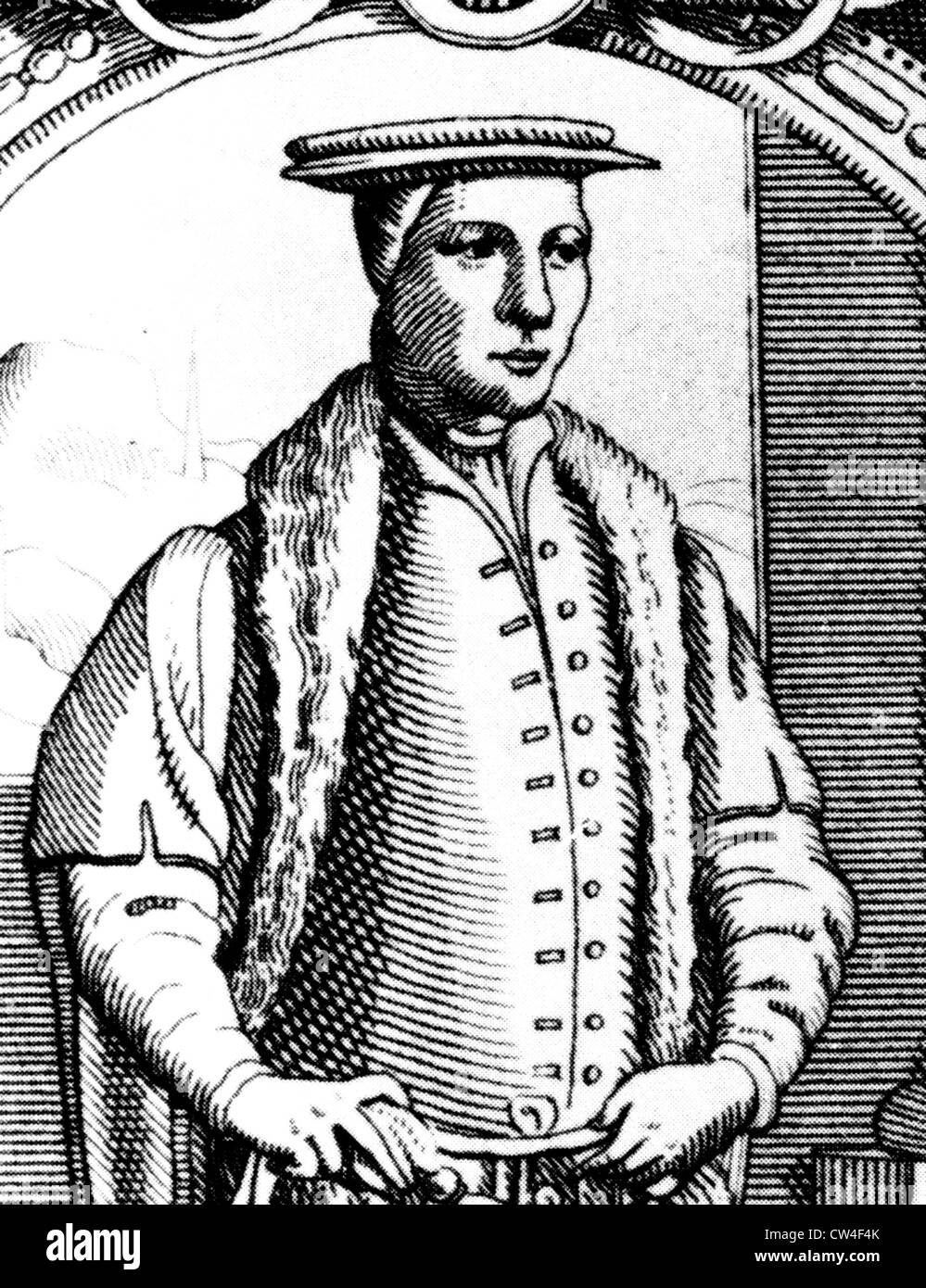John Heywood (c.1497- c.1580) was an English author and playwright. He was probably born in London. He married Elizabeth Rastell, niece of Sir Thomas More. From 1519 under Henry VIII, he was a singer and player on the virginals. Later he became the master of an acting group of boy singers. He received periodic grants that indicate that he was in favor of the court under Henry’s successors, Edward VI and Mary. He was much favored by Queen Mary, and on her death escaped persecution for his Catholic faith by withdrawing to Malines, and afterward to Antwerp and Louvain.
Heywood’s works for the stage were interludes—entertainments popular in 15th- and 16th-century England, consisting of dialogues on a set subject. They were performed separately, preceding or following a play, or between the acts. The four interludes to which Heywood’s name is attached are witty, satirical debates in verse, ending on a didactic note like others of their genre and reflecting some influence of French farce and of English poet Geoffrey Chaucer.
He published interludes- entertainments popular in 15th- and 16th-century England, consisting of dialogues on a set subject, substituting the human comedy of contemporary types for the instructive allegory of morality; but he used narrative and debate rather than plot and action. They were performed separately, preceding or following a play, or between the acts. The four interludes to which Heywood’s name is attached are witty, satirical debates in verse, ending on a didactic note like others of their genre and reflecting some influence of French farce and of English poet Geoffrey Chaucer.
His principal works were The Playe Called the Foure P.P.…A Palmer. A Pardoner. A Potycary. A Pedler , written about 1530, The Play of the Wether, a new and mery interlude of all maner of Wethers (1533), in which Jupiter listens to conflicting opinions as to the kind of weather to be supplied, and A Play of Love (1534). Although entirely faithful to his Church, Heywood did not hesitate to criticize its weaknesses. In his plays, he broke away from the conventional tone and allegorical manner of morality and treated his themes in an ironical, good-humored style. He may also have been the author of The Pardoner and the Friar and Johan Johan the Husband, Tyb his Wife and Sir John the Priest. Heywood wrote a dialogue called Witty and Witless, collections of proverbs and epigrams, and a long satirical poem, The Spider and the Fly (1556). Though Heywood had performed for Elizabeth’s court, he was forced to flee England for Brabant because of the Act of Uniformity against Catholics in 1564. He died in Belgium.
Also read; King James IV of Scotland (1473- 1513): Biography and Influences

Leave a Reply